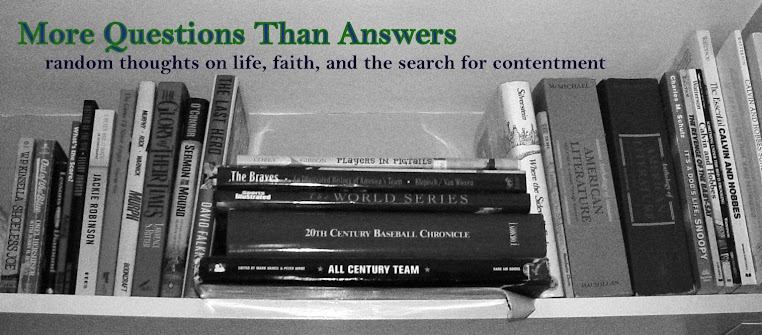 The conclusion of the hot stove league is upon us as February approaches. This year, pitchers and catchers report on February 14th. How poetic that Valentine's Day coincides with the start of spring training. This off season has found my favorite team, the Braves, seemingly scrambling for those few "must have" players. What started off as disastrous has very quickly rounded into form.
The conclusion of the hot stove league is upon us as February approaches. This year, pitchers and catchers report on February 14th. How poetic that Valentine's Day coincides with the start of spring training. This off season has found my favorite team, the Braves, seemingly scrambling for those few "must have" players. What started off as disastrous has very quickly rounded into form.The free agent market is interesting in that the available players seem to be labeled and ranked by the teams, analysts, and agents. This is a natural response of a fan to assess how good certain available players are compared to others, as is for the aforementioned because of the big bucks involved in signing these players. So, the Braves just signed pitchers Derek Lowe and Kenshin Kawakami , the former being the best pitcher left in the free agent pool (according to the pundits, er, knuckleheads) and the latter being an unknown since he's coming from the Japanese leagues. The Braves had made an offer to the second best pitcher available (I disagree), A.J. Burnett but lost out to the Yankees. The point I am trying to make is that teams who have a need for a certain position seemingly start at the top of the list of available players (or somewhere down the list depending on how much the top tier players are asking for) and work their way down until they fill the position. This does not seem like a viable strategy when building a competitive team. It looks more like Christmas shopping. When the hot toy of the season is gone off the shelves then you turn to the next popular item. This way of participating in the free agent market seems mercenary and much too pragmatic considering the millions spent on these players.
I love baseball because of the seemingly simple strategy it presents. From the perspective of team building, the strategy is simple and every team shares it; get the best, proven talent available. (While the strategy may be simple, the process to acquire these players is more complicated.) The reason this approach is so straightforward for any baseball team is because the strategy of the game itself is also simple. Here it is. Baseball is an execution sport. The team that makes the most routine plays wins. There is no playbook in baseball. When the team takes the field in the top of the 1st the opponent at bat knows exactly what's going to happen. Pitch, catch, throw. One out, two outs, three outs. Defenses do not have to be broken down and the offense does not need to resort to trickery. There is more time spent on actually honing and perfecting the skills of the game than on devising a "game plan" by which to catch the other team by surprise.
For some fans of sport this is what they hate about baseball; that the game itself is too routine. I guess this routine matches up well with my personality. I love routine. I like knowing what's coming next. Me and spontaneity do not do so well together. The game of baseball is about discipline and accountability. Success comes with doing the routine better than everyone else. If the routine does not happen consistently enough the performance and outcome suffer. Reminds me of life as a husband, father, employee, neighbor, friend, and God's child.

No comments:
Post a Comment